


Books in series

Language Repertoires and State Construction in Africa
1992

Merchant Capital and the Roots of State Power in Senegal
1930-1985
1992

The Comparative Political Economy of the Welfare State
1994

Uncertain Boundaries
The Social and Political Construction of European Economies
2006

The Puzzle of Strikes
Class and State Strategies in Postwar Italy
1995

Between States
Interim Governments in Democratic Transitions
1995

Comparing Policy Networks
Labor Politics in the U.S., Germany, and Japan
1996

Challenging the State
Crisis and Innovation in Latin America and Africa
1996

Traditional Politics and Regime Change in Brazil
1996

Heroic Defeats
The Politics of Job Loss
1996
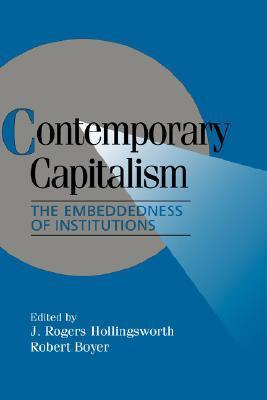
Contemporary Capitalism
The Embeddedness of Institutions
1997

Presidentialism and Democracy in Latin America
1997
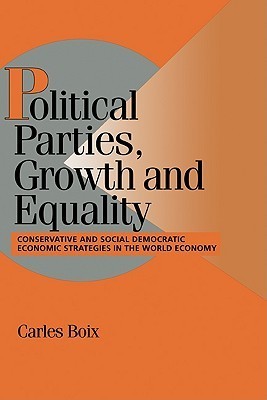
Political Parties, Growth and Equality
Conservative and Social Democratic Economic Strategies in the World Economy
1998
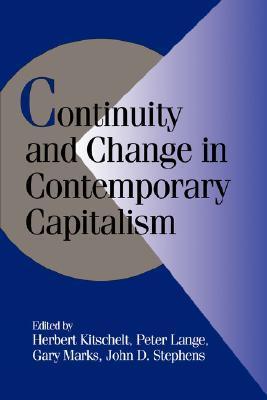
Continuity and Change in Contemporary Capitalism
1999
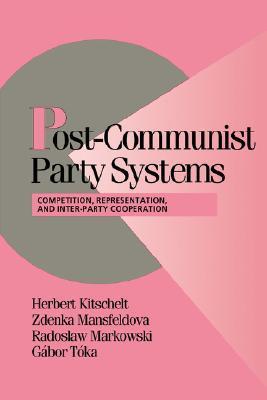
Post-Communist Party Systems
Competition, Representation, and Inter-Party Cooperation
1999
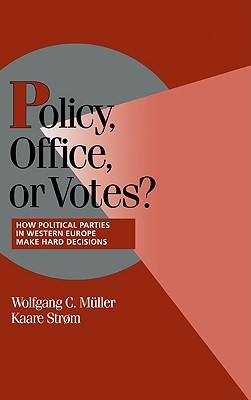
Policy, Office, or Votes?
How Political Parties in Western Europe Make Hard Decisions
1999

Paths toward Democracy
The Working Class and Elites in Western Europe and South America
1999

Reconstructing the State
Personal Networks and Elite Identity in Soviet Russia
2000
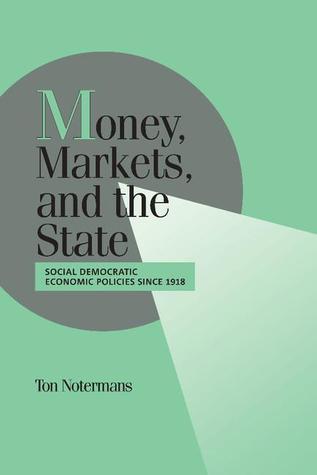
Money, Markets, and the State
Social Democratic Economic Policies since 1918
2000

Pol Mobilzatn Europe Left 1860-1980
2000

Labor Unions, Partisan Coalitions, and Market Reforms in Latin America
2001

Politics after Neoliberalism
Reregulation in Mexico
1997
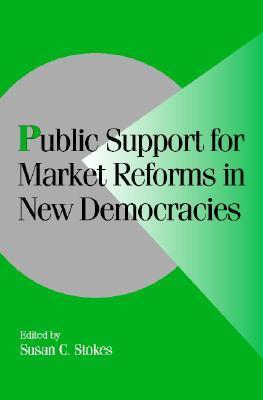
Public Support for Market Reforms in New Democracies
2001

Mandates and Democracy
Neoliberalism by Surprise in Latin America
1997

Unemployment in the New Europe
2001

Clientelism, Interests, and Democratic Representation
The European Experience in Historical and Comparative Perspective
2001
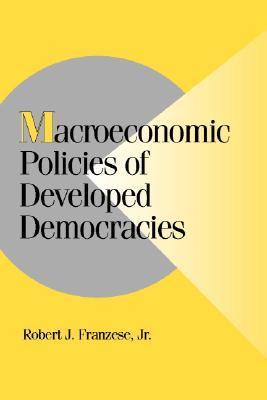
Macroecon Pol Developed Democracies
2002
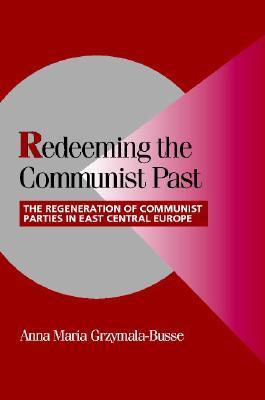
Redeeming the Communist Past
The Regeneration of Communist Parties in East Central Europe
1998

Governing from Below
Urban Regions and the Global Economy
2002
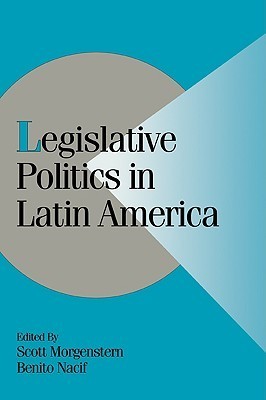
Legislative Politics in Latin America
2002
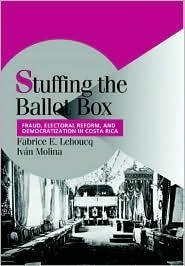
Stuffing the Ballot Box
Fraud, Electoral Reform, and Democratization in Costa Rica
1998

Deliberate Discretion?
The Institutional Foundations of Bureaucratic Autonomy
2002

Global Capital and National Governments
2002

Sustaining Abundance
Environmental Performance in Industrial Democracies
2003

Race and Regionalism in the Politics of Taxation in Brazil and South Africa
2003
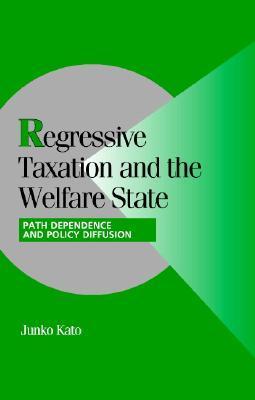
Regressive Taxation and the Welfare State
Path Dependence and Policy Diffusion
1999

The Nationalization of Politics.
2003

Procedural Politics
Issues, Influence, and Institutional Choice in the European Union
2004

Imagined Economies
The Sources of Russian Regionalism
2004

Courts under Constraints
Judges, Generals, and Presidents in Argentina
2004

Hamilton's Paradox
The Promise and Peril of Fiscal Federalism
2005

Regional Economic Voting
Russia, Poland, Hungary, Slovakia, and the Czech Republic, 1990–1999
2001

Taxation, Wage Bargaining, and Unemployment
2006

Crucibles of Political Loyalty
Church Institutions and Electoral Continuity in Hungary
2006

Candidate Strategies and Electoral Competition in the Russian Federation
Democracy without Foundation
2005

Age in the Welfare State
The Origins of Social Spending on Pensioners, Workers, and Children
2006

Federalism, Fiscal Authority, and Centralization in Latin America
2002

Cultural Contestation in Ethnic Conflict
2007

State Repression and the Domestic Democratic Peace
2007

The Architecture of Government
Rethinking Political Decentralization
2007

Selected Works of Michael Wallerstein
The Political Economy of Inequality, Unions, and Social Democracy
2008
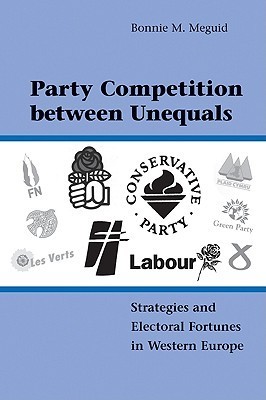
Party Competition between Unequals
Strategies and Electoral Fortunes in Western Europe
2008

Welfare and Capitalism in Postwar Japan
Party, Bureaucracy, and Business
2008
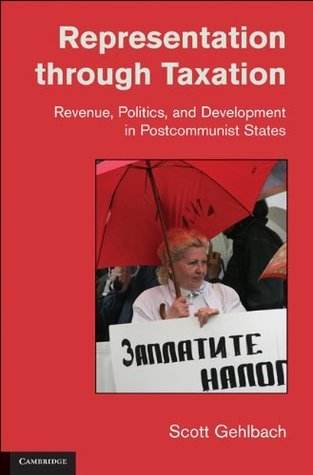
Representation through Taxation
Revenue, Politics, and Development in Postcommunist States
2008
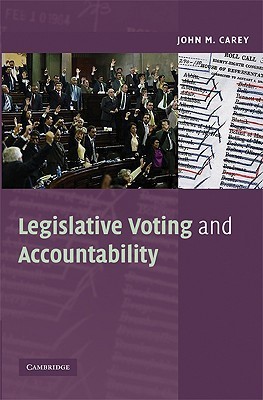
Legislative Voting and Accountability
2008

Fiscal Governance in Europe
2009

The Market and the Masses in Latin America
Policy Reform and Consumption in Liberalizing Economies
2009

The Political Economy of Trust
Institutions, Interests, and Inter-Firm Cooperation in Italy and Germany
2005
Political Competition, Partisanship, and Policy Making in Latin American Public Utilities
2009
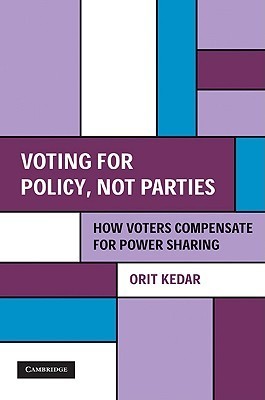
Voting for Policy, Not Parties
How Voters Compensate for Power Sharing
2009

Latin American Party Systems
2010
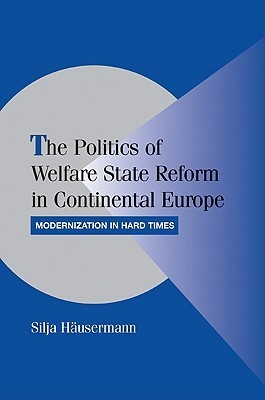
The Politics of Welfare State Reform in Continental Europe
Modernization in Hard Times
2010
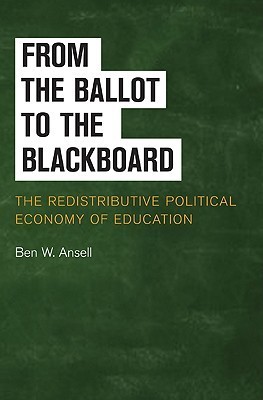
From the Ballot to the Blackboard
The Redistributive Political Economy of Education
2006

Informal Institutions and Citizenship in Rural Africa
Risk and Reciprocity in Ghana and Côte d'Ivoire
2006

Post-Imperial Democracies
Ideology and Party Formation in Third Republic France, Weimar Germany, and Post-Soviet Russia
2010

Oil Is Not a Curse
Ownership Structure and Institutions in Soviet Successor States
2010

Labor Rights and Multinational Production
2010

Framing the Race in South Africa
The Political Origins of Racial Census Elections
2010
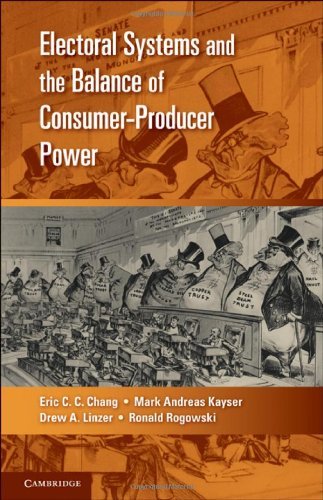
Electoral Systems and the Balance of Consumer-Producer Power
2010

Quiet Politics and Business Power
Corporate Control in Europe and Japan
2010

Western Intervention in the Balkans
The Strategic Use of Emotion in Conflict
2011
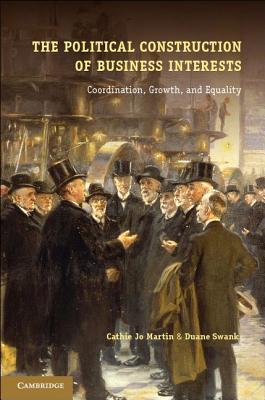
The Political Construction of Business Interests
Coordination, Growth, and Equality
2012

Popular Movements in Autocracies
Religion, Repression, and Indigenous Collective Action in Mexico
2012
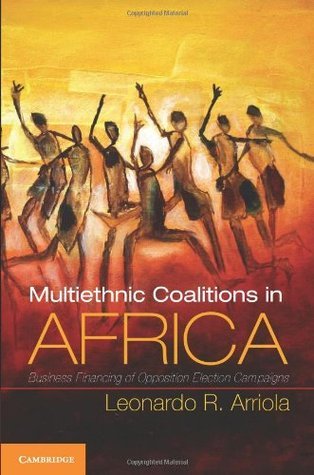
Multi-Ethnic Coalitions in Africa
Business Financing of Opposition Election Campaigns
2012
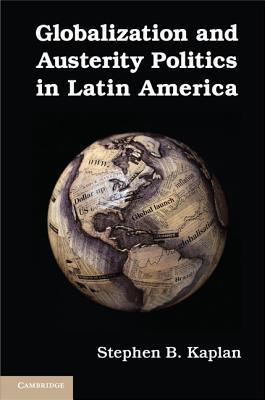
Globalization and Austerity Politics in Latin America
2013

Bankers, Bureaucrats, and Central Bank Politics
The Myth of Neutrality
2013

Hierarchical Capitalism in Latin America
Business, Labor, and the Challenges of Equitable Development
2013

Alien Rule
2013

Networks and Institutions in Europe's Emerging Markets
2014

Nontaxation and Representation
The Fiscal Foundations of Political Stability
2014

Changing Course in Latin America
Party Systems in the Neoliberal Era
2014

From Open Secrets to Secret Voting
Democratic Electoral Reforms and Voter Autonomy
2015
Information for Autocrats
Representation in Chinese Local Congresses
2015

Organized Violence after Civil War
The Geography of Recruitment in Latin America
2016

The Political Logic of Poverty Relief
Electoral Strategies and Social Policy in Mexico
2016

The Price of a Vote in the Middle East
Clientelism and Communal Politics in Lebanon and Yemen
2016
Rebelocracy
Social Order in the Colombian Civil War
2016

Institutions on the Edge
The Origins and Consequences of Inter-Branch Crises in Latin America
2017
Exclusion by Elections
Inequality, Ethnic Identity, and Democracy
2017
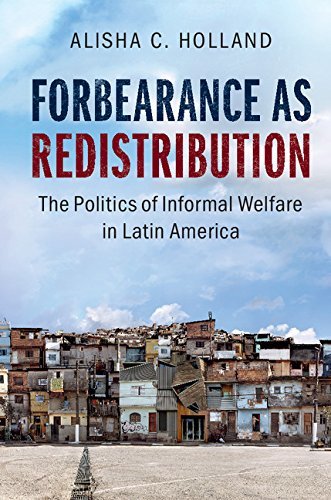
Forbearance as Redistribution
The Politics of Informal Welfare in Latin America
2017
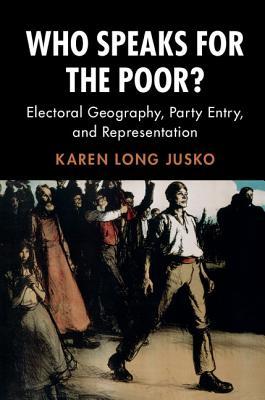
Who Speaks for the Poor?
2017

Deadly Clerics
Blocked Ambition and the Paths to Jihad
2017
Votes for Survival
Relational Clientelism in Latin America
2018

Homicidal Ecologies
Illicit Economies and Complicit States in Latin America
2018
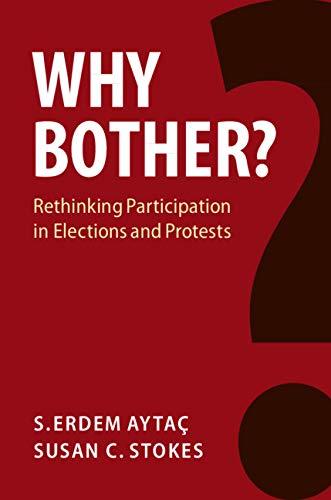
Why Bother?
Rethinking Participation in Elections and Protests
2019
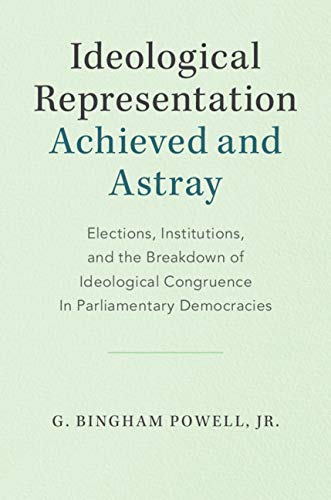
Ideological Representation
Achieved and Astray: Elections, Institutions, and the Breakdown of Ideological Congruence in Parliamentary Democracies
2019

The Historical Roots of Political Violence
Revolutionary Terrorism in Affluent Countries
2019
Information, Accountability, and Cumulative Learning
Lessons from Metaketa I
2019

The Private Sector in Public Office
Selective Property Rights in China
2019
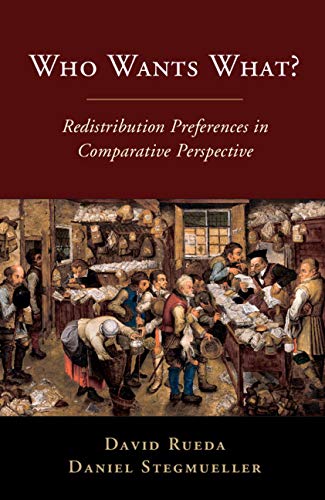
Who Wants What? Redistribution Preferences in Comparative Perspective
2019

From Pews to Politics
Religious Sermons and Political Participation in Africa
2019
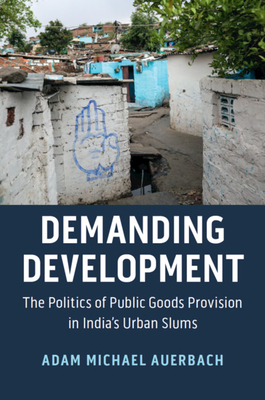
Demanding Development
The Politics of Public Goods Provision in India's Urban Slums
2019

Regime Threats and State Solutions
Bureaucratic Loyalty and Embeddedness in Kenya
2020
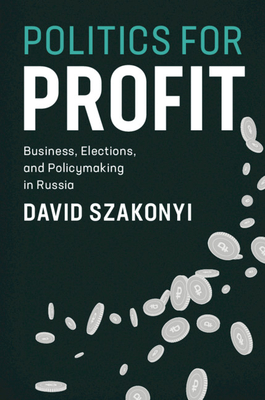
Politics for Profit
Business, Elections, and Policymaking in Russia
2020

Votes, Drugs, and Violence
2020

How Insurgency Begins
Rebel Group Formation in Uganda and Beyond
2020
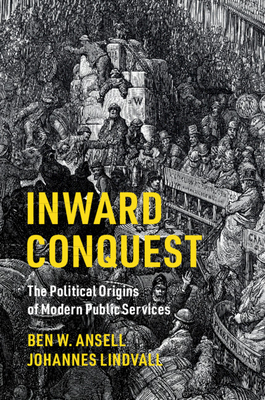
Inward Conquest
The Political Origins of Modern Public Services
2020
Authors


Not here much. Keeping track, such as I do, at The Story Graph. Beyond my political science work, writing Fate Music: Jerry Garcia Beyond the Grateful Dead

